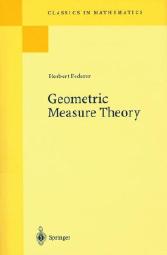File: GMT.jpg ( 15.31 KB , 394x600 , 1670201187939.jpg )

Hello. There is an organized reading course in Geometric Measure Theory being held from 10 Dec to 21 Jan. This will cover sections 2.1-2.6/7 of the textbook "Geometric Measure Theory" by Herbert Federer. Once this session is completed, a new schedule will be determined to continue reading deeper into the text. Problem sets and reading assignments will be posted at the beginning of each week, to be discussed the following Saturday during a group meeting.
The prerequisites for this reading course are point-set topology, linear algebra, undergraduate real analysis, and abstract algebra (standard undergraduate maths education). The textbook is self-contained with respect to measure theory, differential geometry, and algebraic topology. Therefore, you do not need to know those three subjects to participate. You are welcome to join.
Instead of discord, we will be using Matrix/Element to communicate. This messaging service offers native LaTeX integration (i.e., you can type LaTeX into a message and it will instantly render).
You may join the server using the link below:
https://matrix.to/#/#algebraists-anonymous:matrix.org

